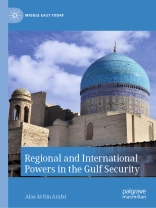This book discusses the threats and challenges facing the Persian Gulf and the future security in the region, providing an overview of the major regional and extra-regional actors in Gulf security. It argues that except for Iran, no regional or extra-regional actors, including the United States, China, India and Russia, have developed a strategy for Persian Gulf security, and only Turkey has expressed a willingness to provide security for the region. Importantly, the major threats to Persian Gulf security are nonconventional, rather than external, threats to Iranian hegemony or the balance of power. In conclusion, it predicts that the power struggle in the Persian Gulf in the coming decades will be between Iran and Turkey, and not between Iran and Saudi Arabia. This book is of interest to diplomats, journalists, international affairs specialists, strategists and scholars of Gulf politics and security and defence studies.
Tabella dei contenuti
Chapter 1: Theoretical Framework.- Chapter 2: The United States and the Persian Gulf Security.- Chapter 3: Rising Powers and the Persian Gulf Security.- Chapter 4: Iran’s, Saudi Arabia’s, Defence and Security Strategy.- Chapter 5: Iran-Saudi Geopolitical Rivalry.- Chapter 6: Turkey and the Persian Gulf: From Zero Problems with Neighbors to Zero Friends.- Chapter 7: The GCC Threats and Security Challenges.
Circa l’autore
Alaa Al-Din Arafat formerly taught in the National Security and Defence Studies programme at Oman National Defence College and Sultan Qaboos University, Oman. He was a professor of Middle East Studies at the French University in Egypt and an Associate Researcher at London University, SOAS, UK. He is the author of The Mubarak Leadership and Future in Democracy in Egypt (New York: Palgrave Macmillan 2009), Egypt in Crisis: The Fall of Islamism and Prospects of Democratization (2018), and The Rise of Islamism in Egypt (2017).












